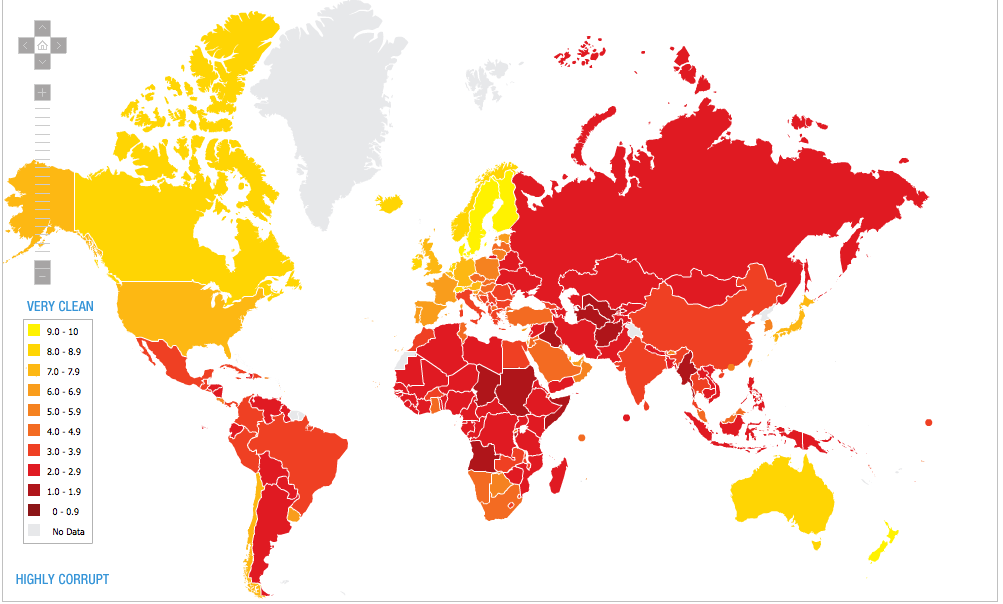Uruguay and Chile, least corrupt countries in Latin America


Over two-thirds of the 176 countries and territories in this year’s Corruption Perceptions Index fall below the midpoint of a scale spanning 0 (highly corrupt) to 100 (very clean), said Transparency International (TI) upon the release of the non-profit’s 2016 report. No country reached above 90.
The global average score is a paltry 43, indicating endemic corruption in a country’s public sector. And top-scoring countries are far outnumbered by countries where citizens face the tangible impact of corruption on a daily basis.
Results can be viewed on a map at the TI website.
In Latin America, Uruguay leads with a ranking of 21, followed by The Bahamas and Chile both in 24th place, and Venezuela figures at the bottom.
This year’s results highlight the connection between corruption and inequality, which synergistically create a vicious circle of corruption, unequal distribution of power, and unequal distribution of wealth, said the index researchers.
“In too many countries, people are deprived of their most basic needs and go to bed hungry every night because of corruption, while the powerful and corrupt enjoy lavish lifestyles with impunity,” said José Ugaz, Chair of Transparency International
The interplay of corruption and inequality also feeds populism, said TI. When traditional politicians fail to tackle corruption, people grow cynical and are more include to elect populist leaders who promise to break the cycle of corruption and privilege. Yet this is likely to exacerbate – rather than resolve – the tensions that fed the populist surge in the first place.
Leading the index of countries examined in 2016 were Denmark and New Zealand with scores of 90/100. At the bottom of the ranking sit South Sudan with 11/100 and Somalia with 10/100, according to the index results.





